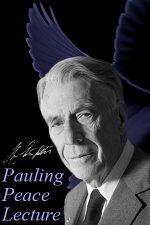Speaker Biography

“The Military Power and the Larger Complex” Watch Video
An economist, author, Ivy League professor, and government official, John Kenneth Galbraith (1908-2006) was an important figure in the debate over U.S. economic policy and foreign relations throughout much of the twentieth century.
Born in Canada, Galbraith received a master's degree in science and a Ph. D. in Agricultural Economics from the University of California, Berkeley. He became a United States citizen in 1937, and studied that same year at Cambridge under the famous British economist, John Maynard Keyes. Galbraith went on to teach at both Harvard and Princeton.
As Deputy Administrator of the Office of Price Administration during World War II, he was largely responsible for organizing the wartime system of price control. Galbraith was later a director of the U.S. Strategic Bombing Survey, which investigated the effects of the air attacks on Germany and Japan during World War II. He was an early supporter of John F. Kennedy, and served as the U.S. Ambassador to India during Kennedy's presidency.
A former editor of Fortune magazine, Galbraith was also an accomplished author. He published several best-selling books on economics, including The Affluent Society, which criticized the lack of social infrastructure in the United States. Galbraith also wrote numerous essays and novels, as well as two memoirs. In 1984 he was elected President of the American Academy and Institute of Arts and Letters.
For his diplomatic and scholarly contributions around the world, Galbraith twice received the Presidential Medal of Freedom (in 1946 from Harry Truman and in 2000 from Bill Clinton), as well as highly prestigious national honors of merit from the Canadian and Indian governments. Galbraith continued to write and lecture before dying of natural causes on April 29, 2006, aged 97.


